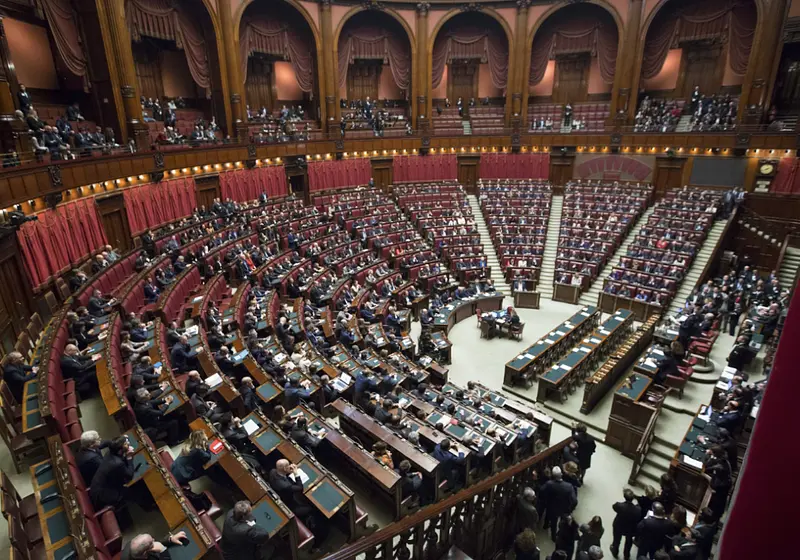"Cinders patter, falling with the snow. We creep infinitesimally northward through the dirty chaos of a world in the process of making itself."
- Ursula K. Le Guin
The world has never been quiet. Dotted across the timeline are bloody wars and gruesome battles, historical revolutions and constant political reforms, prolonged famines and devastating tsunamis. There has been turbulence and trauma every year, every decade, every century. The earth has never truly withstood a period where societies coexisted, economies stabilized, and ecosystems thrived in peace.
Although countless eras saw times of futile pain and suffering, from within this disarray sometimes sprung progress and positive change. After the world stumbled through the grisly 40s and mutinous 70s, we now arrive at a precarious period in human society.
A purgatory between progress and pain.
Regression and stability, havoc and order, new problems and solutions, all happening simultaneously. There’s an unprecedented disparity between not only different nations and continents, but also time— monumental events are much more chronic and widespread than they were a century ago. These social changes are essentially inevitable, as we live in an ever-evolving world, but has social change become so frequent that it has lost its significance?
And in this complex domino, an intricacy stands out amongst all others. Our generation, Gen Z, has arguably experienced this phenomenon to its full capacity, from living through a global pandemic to witnessing wars and conflict all over the world. Yet the ways we deal with these events is astounding and quite drastic when compared to those of any other generation throughout history.
So what exactly has caused our generation’s desensitisation to major global events?
Let us slide into your dms 🥰
Get notified of top trending articles like this one every week! (we won't spam you)The Dawn of Technological Progression
The 2000s were known for a lot of things: worldwide recession, the birth of literary classics like Harry Potter and cinematic masterpieces like 10 Things I Hate About You, crumbling stock markets, denim miniskirts, and boho-chic red carpet fashion. Above all, it was the rise of arguably the most revolutionary invention since the wheel: the internet.
Most of Gen Z were born in the 2000s, growing up in a brand-new world dominated by telecommunication and technology. As we grew older, we witnessed rapid digital progress, from the launch of the first iPhone in 2007 to the invention of Instagram in 2010.
The online world had an inexorable impact on the way we perceived everything around us from a young age. News was no longer delivered by a singular newspaper, but by a plethora of news websites, online tabloids, blog posts, and Tweets. Social media enabled anybody and everybody to post about local news and their opinions on various issues.
Take the Quiz: Which Indian city is the perfect holiday spot for you!?
Let's match you with an Indian city that you would love!
"Instagraphics" and the Ebbinghaus Theory
A 1970s economist and futurist, Alvin Toffler, coined the term "information overload" in his early literature when writing about the increased knowledge humans are exposed to. Applying it to the 21st century, this term still has massive significance today, as is witnessed in the abundance of information readily made available online.
Studies have proven that this overload then leads to a human tendency to start filtering information into two compartments in our brain: short-term and long-term memory. As humans spend more and more time in the online world, our long-term memory bank decays, and thus we begin to forget a larger amount of the information we take in.
The concept of information overload is extremely relevant when we talk about filtering social justice issues. With so many inequalities being highlighted in the world, we tend to devalue their significance and gravity by filtering most into our short-term memory banks, as they’re daily occurrences in our lives. This informational overload could be closely compared with supply and demand in economics: the more "supply" of inequalities in our lives, the lesser "demand" to act on or care about them.
But the complexities continue to grow more intricate. Social media’s biggest trademark is drawing consumers' attention in order to increase app engagement; this economic target stays constant when talking about social justice issues.
We all know "Instagraphics", a largely popularised way to convey statistics or spread awareness about anything on the social justice spectrum. Pretty pink squares with bold numbers and shocking stats, shared across the internet for a day, bring people together in reposting and liking and caring for 24 hours about model minority myths or genocide or violations of rights.
And then, all of a sudden, it’s like it never happened.
It’s almost as if social justice movements fall in the same category as summer fashion favourites. They are "trendified", just like puffer gilets or platform crocs. They make a big, flamboyant entry onto social media, and die within two or three weeks, giving the notion that they have been miraculously solved or diminished due to 2000 reshares.
We could blame this strange occurrence on the Ebbinghaus theory.
"Humans start losing the memory of learned knowledge over time, in a matter of days or weeks, unless the learned knowledge is consciously reviewed time and again."
- Praveen Shrestha, Psychestudy
Social media are known to change rapidly, to provide something new and exciting so that they may engage the consumers (us). But we tend to forget that social media aren’t the primary sources of reliable news— that job is for the actual news. So maybe we’re not completely at fault here; if these social justice issues were brought up frequently on official news websites, we would understand their real significance in a contextual setting, without emotionally evoking headlines or tokenistic pictures.
For example, on May 1st, 2021, the Taliban regained control of Afghanistan after 18 years, immediately violating multiple women’s rights, such as freedom of education and speech. Directly afterwards, social media were flooded with the news, the pictures, the stories, the ways to help, etc. The news was also filled with the latest updates, featuring interviews with experts and with women who had barely escaped.
And after hardly two weeks, there was nothing— no new infographics, no news stories, nothing. The crisis had simply been added to the already-long list of forgotten social issues. But the war on women in Afghanistan still continues to this day.
The Gen Z Effect
The effects these issues have on this generation don’t stop with forgetfulness. It’s altered our way of thinking— our outlook on the world as a whole. Past generations had a sense of purpose in life, whether it was to get married, to inherit the local family business, or to devote their life to their God, which essentially distracted them from the fact their economy was in ruins and they had no rights.
Gen Z, on the other hand, has no shackles bounding their minds to creating linear paths. So, when faced with expeditious change and no way to deal with it, our minds spiral.
We gravitate towards humour and absurdism as a way to comprehend these social changes, from using TikTok trends to talk about BLM or climate change to doxxing the judges involved in the Roe v. Wade ruling.
@poopy_shart.69 they'll make fun of the supreme court #roevwade #supremecourt #southpark #abortion #womenempowerment #supremecourtslander #fyp #fypシ #fyyyyyppppp ♬ South Park Theme - Voidoid
“Humour is their anchor, enabling them to maintain a grip on their new normality”
- Sylvia Alston, University of Canberra
Science and discovery has proven many spiritual beliefs to be incorrect, like the 15th century philosophy that the earth was the centre of the universe, or the polytheistic era where people believed the gods would cure them of their disease and sorrows. Gen Z has been able to slice through the gauze of religious indoctrination and see the world as it truly is: a rock floating in space.
With no higher power to trust and no blind belief to follow, we start viewing everything through a cosmic and evaluative nihilistic mindset— the mindset that nothing really matters. Unlike past generations, the belief that humans have no goal and destiny on earth other than to live and die runs deep within our subconscious, creating an existentialist, escapist mentality.
In his groundbreaking novel Future Shock, Toffler quite accurately predicted the huge role technology had and continues to have in the future and in society’s mindsets. He invented the term after which the work is named to describe the trauma one experiences when going through great changes in a short period of time.
Like pieces of a puzzle, these facts come together to show us some tangible clarity. We’re growing up during what sometimes feels like the end of the world. Wars are no longer a faraway concept in some faraway land, but a cold reality on our TV screens.
We’re watching extinction, persecution, suffering, and hate engulf the globe, unfiltered and overflowing through our screens. We live in a planet where women's bodies are more regulated than guns, where people decide being dead is better than being queer, where depression and anxiety has captured almost half the population. Humour, escapism, nihilism, absurdity— at the end of the day, they’re all coping mechanisms to deal with future shock.
So, while the world whines and complains that Gen Z is composed of a bunch of soulless, God-hating sadists with social media addictions, notice the beauty in our coping: if we’re not old enough to change our future, we come together and laugh. We pride ourselves in being open and free and inclusive and diverse. We find a community to fight off the sense of doomism, and we use positive energy to combat the negative.
So maybe we’re not desensitised, or unfazed, or indifferent. Maybe we’re just so tired of a world full of hate that we try to focus on the happy.
it’s a good thing nothing is real
— just a little guy (@moistoes) June 28, 2022

















